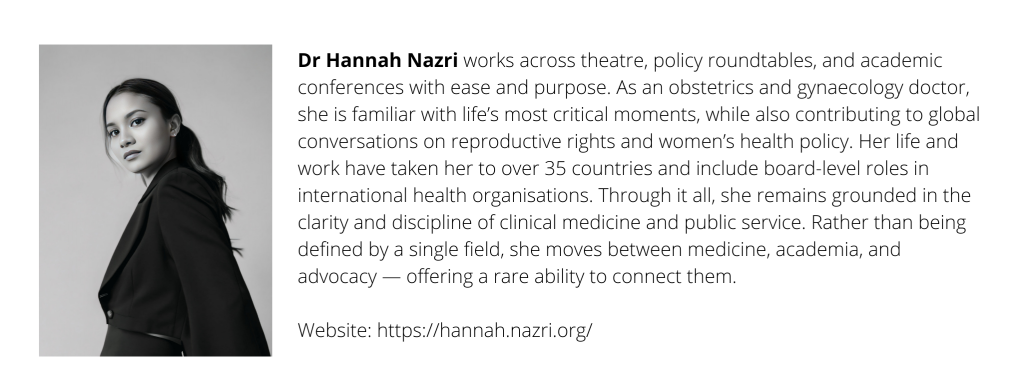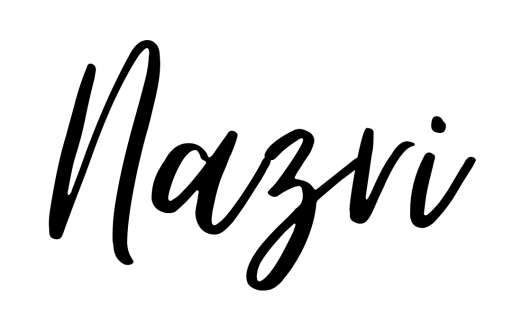
First published in the Harvard Public Health Review (now Boston Congress of Public Health) on 16th August 2021. An article on the importance of activism in medicine. Featured image by Gemma Chua-Tran on Unsplash.
I was a little offended when a senior in my department suggested to me that I could abandon clinical work and “join the UN” due to my interest in advocating for patients and eliminating harmful practices such as female circumcision in Malaysia, as well as my involvement in charity work. Am I not cut out for clinical work? Perhaps I appear not focussed. True, not all medical doctors need to be doing clinical work. Many medical doctors have explored different career options and have been successful in careers outside of medicine. However, to me, clinical work is important, as with research and activism. I do not see why I cannot combine my interest in activism with my clinical work and research interests. To each their own but let me explain.
As a medical student, I used to think that medicine is just about the sciences and science is exact and factual. But science was never infallible. The nature of science means that today’s evidence will be debunked in the future. That does not mean today’s evidence is wrong. It simply means that today’s evidence supported observations which are made using the best technologies of today. In the future, we will find better ways to measure observations therefore nullifying today’s evidence. Science is not about facts. Science is continually evolving, as our understanding of the world gets better. Science is about a methodological approach to thinking and deriving conclusions.
Importantly, what makes medicine different to the sciences, is the fact that we treat people, not microorganisms, single cell units, or a huge mass of tissues. Medicine is not just about understanding the sciences. It is an art. Medicine is the art of taking the sciences and turning it into salvation, hope and comfort for the patient. Medicine is not just about memorising facts, then spitting it out as a solution for the patient. It is about caring and supporting another human being when they are most vulnerable. So, when we see patients who still report symptoms despite the observations, despite all the investigations that we have exhausted, let’s be kinder and accept that we do not know everything. Because the science is always evolving. Therefore, in view of more robust evidence, as medical doctors and researchers, we must be prepared to abandon the previous “false” central dogma and embrace newer tenets supported by this more robust evidence. In addition,
We must also acknowledge that the scientific process is not without its biases. The reality is that medicine and “real life” do not exist in isolation. Share on XA nation’s political and economic climate, culture and religion can impact healthcare received by a diverse population of patients who are defined by their different socio-economic status, ethnic and group cultural and religious beliefs, language, gender, and sexual orientation. A failure to understand the relationships of these factors with how your diverse group of patients perceive health, access healthcare, and accept medical advice ensures sub-optimal care for your patients because we cannot relate to our patients. Believing that the healthcare system is fair and not biased against certain groups of patients is naïve. This is especially true for women. I have written extensively on how women are discriminated against when it comes to reporting pain symptoms here. I have also written extensively about how long COVID and ME (myalgic encephalomyelitis) patients will continue to suffer due to our belief in institutions and “eminence-based medicine” instead of evidence-based medicine here.
So, to be honest, it is mind boggling to me when medical doctors or researchers tell me that they do not want to be involved in the “politics” especially when they are involved in the care or research of the most vulnerable patient groups where a disease or condition is very little understood. They should have a better understanding of the issues experienced by these patients when accessing healthcare than most people. Being actively involved in the discussions is especially important when there are “differences in opinions” in the medical management of these patients within the groups of medical doctors and researchers, and a disconnect in what constitutes good medical care between patients and the medical institution.
As medical doctors, we do not have to have all the answers to life’s injustices. We are human. But when you do not have the answers to everything, what separates you from being a bad doctor to a great one, is your compassion for another human being, which can be observed through your mannerisms offline and online. Perhaps not all medical doctors should be involved in activism. But who else should be, if not us, the very people entrusted by the public to care and advocate for them when they are unwell?
Related posts:
- Jessica Pin on Clitoral Anatomy, Labiaplasties, and Smart Patients | Harvard Public Health Review
- Malaysia: FGM/C, Period Spot Checks, and Sexual Harassment | Harvard Public Health Review
- Countering Everyday Extremism Against Women: The Other Pandemic
Like what you read? Subscribe to my blog.
About the Author: Hannah Nazri


